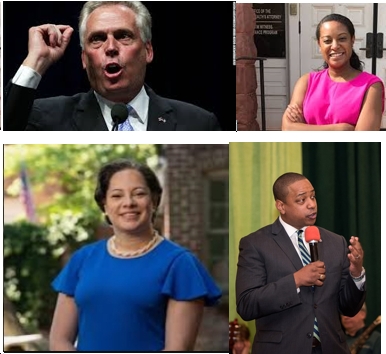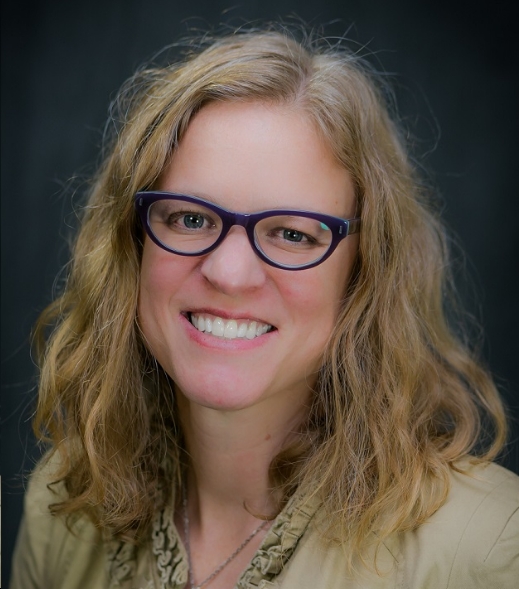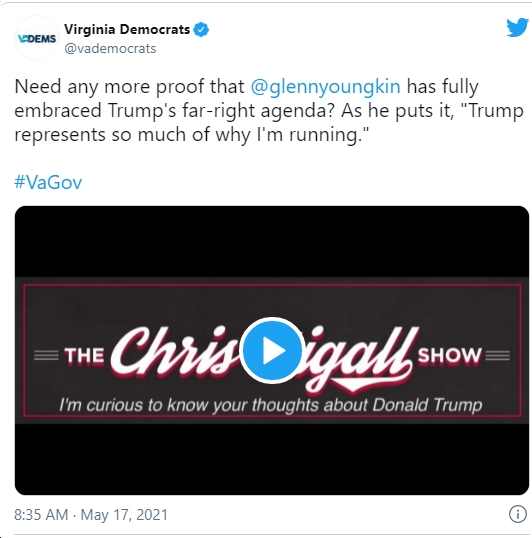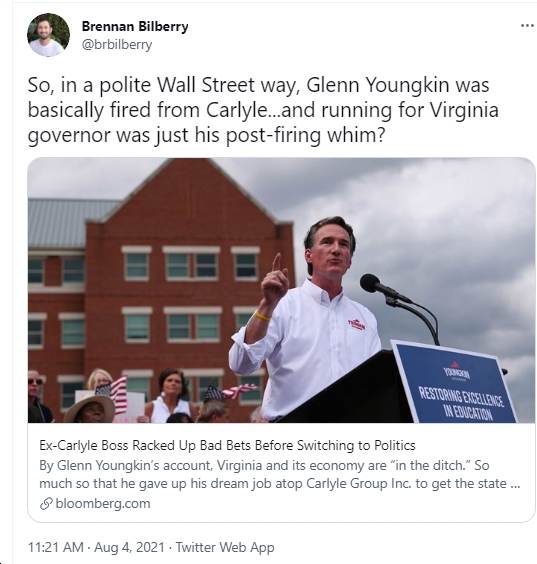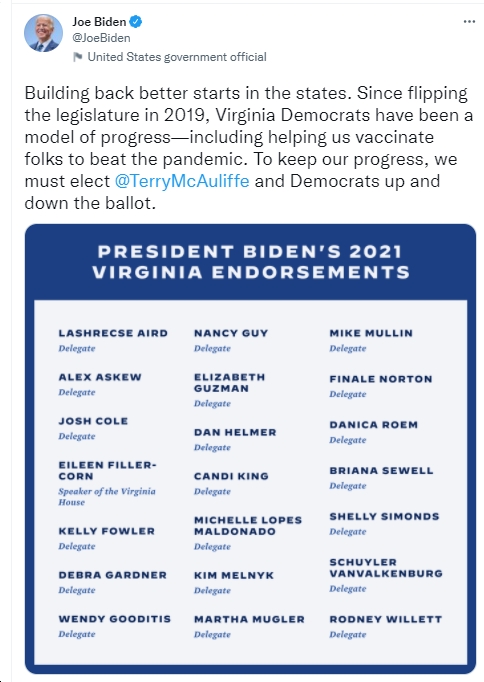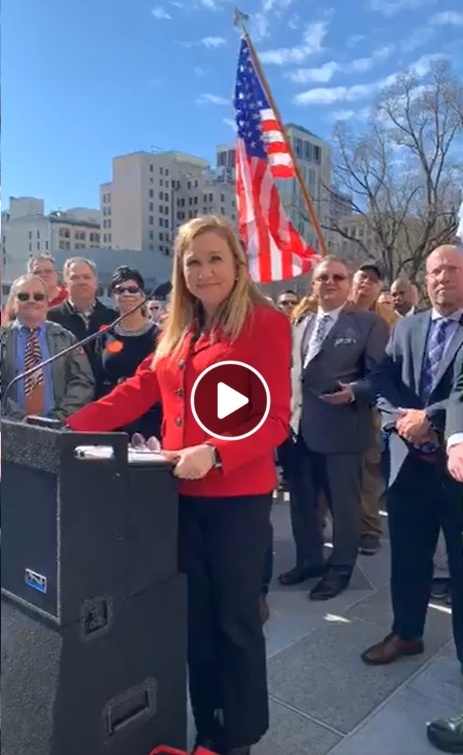I had a chance yesterday to chat with Sean Perryman, a likely Democratic candidate for Lt. Governor of Virginia in 2021. See below for the wide variety of topics we covered in about 40 minutes. I’ve added some bolding, in blue, for a few things that jumped out at me. Thanks to Sean for his time, right before the Labor Day weekend!
BV: Why did you decide to run for Lt. Governor at this time? Had you been thinking about doing so for a while?
Perryman: “No, I definitely wasn’t thinking about it for a while. It’s really been in response to – I don’t even know if we can call it a moment, it’s lasted so long – it’s been a response to the pandemic. We’ve seen the complete failure of the federal government, but also working in the community and seeing how our state government wasn’t really serving people as well as they could. That goes from everything from getting unemployment benefits to people, completely unable to do the testing. And a lot of that was the failure of federal government, but I thought our pandemic response was sort of scattershot – some places are opening, some aren’t…just sort of all over the place. That is what disappointed me in what is happening in government. And once George Floyd was murdered and I saw how government – the juxtaposition of how government was able to respond to protests against police violence…we saw tear gas, dozens if not hundreds of officers at any given time. We had all these things to put down a protest, but we had nothing to serve people in the middle of a health crisis…
…The CARES Act, famously, a lot of that money went to the Lakers and to huge organizations, not the mom-and-pop operations…You look at our response…while they expanded unemployment benefits, really for most people it was $1,200 and good luck. You look at other countries who we’re competing against…they were giving $2,000-$3,000 a month for the duration of the pandemic. So, we see how that money could have been used to go to every individual, and instead, like most things in our society, it’s going to big business and the people on the ground are being missed.”
BV: Such as the airline industry?
Perryman: “Exactly, exactly that! And so, this was what, in my mind, if there’s anything that’s emblematic of what all the problems would be in our society, this virus has really exposed that. Now, I agree with you, the Trump administration passed the buck, they failed us. I think the state government…I’m an attorney by trade…One of the first things we did in the Fairfax NAACP was work to get money to minority-owned businesses. But unless you’re government you can’t save everyone. We were able to get to about 30 businesses…gave them these $3,000 loans…”
BV: But unlike the government, you can’t print money. [laughs]
Perryman: “Yeah, I can’t print money. [chuckles] But government should be able to do that. But here’s the thing, and I always say this to people – when we opened up versus when we were closed, the only difference I saw…is that we realized, oh, the federal government is not going to – we were buying time for the federal government to come up with a plan. We realized that they weren’t going to come up with a plan, so we opened up. And we didn’t think about how to do that in the safest way possible. We didn’t have the worker protections. You look at Virginia, and its part and parcel of our DNA – you know, best for business worst for workers. And there needs to be a shift, there has to be a balance of that, especially now. So when we opened back up, nothing had changed, other than we realized that, oh, Trump’s really not going to do anything. But we didn’t think about what is the impact to the front-line workers, what can we do to do this in the safest way possible? What can we do to open up in a way that helps business? Because we were doing, some areas were open, some were not. ..You can deal with regulations, but what you can’t deal with is uncertainty, and there was so much uncertainly. I just think it could have been done better. And then after the George Floyd murder…for the first time I saw, [people] were responding with some urgency to the situation…I was realizing, you don’t really understand the full impact of what’s going on. I look at this moment, I look at this health crisis, I look at this reckoning of racial justice, and I look at the threat to our democracy that’s posed by the Trump administration, and I say we need someone who is willing to be an honest broker, speak up even if it’s unpopular – that’s me, I’ve done that – and who can answer some of these questions. And I think my policy background, the things I’m doing, give me a unique set of experiences I would bring to the role.”
BV: Why are you interested in running for Lt. Governor, per se? Some people would argue that it’s kind of a powerless position, you preside over the Senate and inquire daily as to the health of the governor as the joke goes. So why Lt. Governor, what would you do with it, what’s your vision for the job?
Perryman: “I think it’s an underutilized office as it stands now, I think a lot of people get in it and say I’m going to sit quietly and run for governor, right? I don’t think I could sit quietly for four minutes, let alone four years. I think the real power in the office, obviously you’re the president of the Senate and you can break ties, and in our current makeup, there may be a lot of ties… But I think the real power is being one of three statewide elected officials…You automatically become a leader within that party. In that role, what I would hope to do is not only break ties and be a progressive voice in the Senate, but I would want to be someone who says this is what Democratic values should be, these are the policies we should be championing… I want to be outspoken, have a foot in what is the governor doing and everything else… pushing legislation, but I also look at it like this: whatever world we’re living in by 2022, it’s either going to be a world with a vaccine or a world without. But either way, we have so much work related to COVID, whether that’s a post-COVID recovery or trying to figure out how we continue to live through COVID. So my campaign, I look at it with three Es – education, economics and equity – and that’s sort of the lens I look at everything through. And I want to be one of the people leading the charge and figuring out, we’ve gone through this, how do we avoid this in the future…[and] have an equitable state…to make it better for the 21st century, with all the problems that we know await us. That’s why this role is exciting to me, it’s not even just looking at 2021, but…the next ten years…how do we build out our bench? how do we set up our values of what is the thing we need to start pushing for? Because you know with legislation, especially in Virginia, it’s always like, let’s do it incrementally. So we’ve got to start now and be pushing and pushing for the next 10 years. So that’s what I look at and get excited about, as a country, as Virginia, we’re all dealing with the pandemic, racial inequities, environmental stuff. I want to be a part of that and how we shape our community for the future.”
BV: You want to be “in the room where it happens,” as they said in Hamilton? [laughs]
Perryman: “I want to be in the room as an advocate for everyday people from the community, coming from my background…that’s why I want to run for Lt. Governor.”
BV: Any previous LGs you particularly admire/potential role models?
Perryman: “You look at Don Beyer, what he was able to do with that role, I look at that as something you could model it after. But I think it also would be different too, I think it would be someone who’s a little bit more shaking things up and really weighing in on what are we doing here, both in the Senate and with legislation…But to me, it’s not just the role in government, it’s also the role in leading the party – what are we doing as a party, who are we looking to bring up in the ranks and all that, that’s what I want to be involved in.”
BV: How do you feel like the Special Session is going so far? We had a vote on Qualified Immunity Friday, lots of other criminal justice stuff going on, etc. A lot of stuff’s passing, but obviously some things haven’t.
Perryman: “I think this session, it’s shown that we’ve made some progress, but we still have a ways to go. I would say that there have been some big disappointments – not to undercut the work that’s been done – but big disappointments when I look at qualified immunity...we had a chance to lead here, and we didn’t do it. I look at the paid sick leave for teachers that was voted down in the Senate…in this moment, we had an opportunity and I don’t think we seized it. So there’s been good and bad, but those things stick out for me, because this was something where we could have made radical transformational change in the way things are done. And I think some people get caught up in, is this about police or whatever? It’s about public safety, but it’s about accountability in government…Government has failed us in so many ways now, and what we need to do is reform and make good government again. So I would say I’m pleased there’s been some progress but disappointed that we missed some of the big opportunities.”
BV: What do you think happened with the qualified immunity vote? Three Democrats abstained, five Democrats voted against it. Republicans, of course, all voted against this and other reforms, and we shouldn’t let them off the hook for that.
Perryman: “I think what happened here in this moment…people think that we can push stuff off until 2021, that’s part of the reason. Also, I think it’s one of those things where people think that it can get better…and they’re not really communicating. This is another reason why I’m running, and I think my candidacy’s a little bit different. This year, I think more so than anything, we’ve heard from people Black Lives Matter awakening…It came on, unfortunately, after the suffocation of George Floyd. It shouldn’t take a man getting suffocated in the street to realize that. I feel like before this moment, I realized that…I feel like I’ve been consistent…if anything, people have moved closer to where I was already…I think there’s a misunderstanding of what ending qualified immunity means…I’m disappointed in it, and I hope we’re able to seize this opportunity again but I don’t know if we will be able to…I hear you and I agree with you, we can’t let Republicans off the hook. But this is how I look at the world – there are people that you can persuade and bring along, and then there are people you just have to change their seats, you have to get them out of office… Republicans have gone so far afield, that is beyond persuasion, it is now, we just have to get you out of office…We should definitely not normalize [what Republicans are saying and doing]…but if someone is saying they want to do the right thing…and then voting with someone like Todd Gilbert…then it’s like, look, do you really understand it, do you really mean what you’re saying? So that’s why I’m a little bit harsher sometimes on Democrats, because it’s like, you’re saying you understand… but when you align yourself with that side, it’s very hard for me to rationalize or make sense of it. And I don’t want to underplay how far right the Republican Party, especially here in Virginia, has gone. It’s dangerous and we need to fight against it every way we can.”
BV: Thoughts on the redistricting amendment? Just had Loudoun County Dems vote overwhelmingly to recommend a no vote on the amendment. Also Fairfax Dems, PW Dems, Arlington Dems, etc. voted overwhelmingly to recommend “no” votes on the amendment. What do you think?
Perryman: “I don’t want to say exactly my position, because the NAACP is going to consider this too among the membership too…so I’m waiting for that. But I do think there are issues with the amendment…We’ll be taking it up in our September meeting…probably make a recommendation for our membership.”
BV: Where were you on the Virginia Clean Economy Act vis-a-vis the Green New Deal? My view is that the GND is great, but it didn’t have the votes, while the VCEA seemed like a fairly heavy lift but doable, almost all the enviro groups were supporting it. This gets at your approach to politics – get something done and build on it or go for the “perfect?”
Perryman: “I look at it like this, with the VCEA, the issue…is the timeline, we are up against the clock as it is, environmentally. And it’s hard for me to say what I would have done hypothetically in the situation, because it really depends if I was the sponsor of the bill, etc. I think I would have pushed as hard as I can to get what we can. I have no problem saying that the VCEA doesn’t go far enough, it doesn’t go quick enough. So we’re definitely going to have to improve this, I just think it’s really tough when you have that sort of negotiation with all those different actors at the table and you put in a timeline that’s so far out, to then go back and try to change it. But I would say that if I championed the Green New Deal, I would have seen it through, that would have been my priority to see the thing through. And I feel that in some ways that was abandoned…I don’t know all the backroom talk and everything else. But we need to make sure that we are ensuring a sustainable future here in Virginia. That includes creating new jobs…we all know that climate change affects vulnerable populations first and foremost…it touches everyone, but that’s the first and usually the hardest hit. So we have to make sure we’re not kicking this can down the road, because there’s not that much road left…”
BV: The energy sector in Virginia is a huge, complex subject. Many people said that the GND was mostly aspirational, that there wasn’t modeling behind it, that it was largely aspirational, that there was no legislative coalition behind it. Obviously, you need legislation that is workable and can passed the legislature…”sausage making,” so to speak. What’s your view on this, and to the approach to legislating in general?
Perryman: “I look at it like this – we have to be pragmatic, not just principled. We have to make sure we get something done….Here I am in…the Fairfax County NAACP… I’ve been able to build coalitions across the state, because we’re willing to work with partners to figure out what’s the level of consensus we have to do that. And we’ve been able to do advocacy efforts, where we put pressure on legislators…I don’t think I’ll be diminished in that role if I become Lt. Governor and I can think of ways to put pressure on colleagues and also bring them along to do these things…I’ve been building coalitions and working on tough policies and doing those things. But what I’ve seen from my purview watching the General Assembly is the Senate’s doing one thing, the House is doing another…and they’re not coordinating. And what we need is leadership to bring us together, that before we get to prime time, we have some sort of agreement on what’s going on...What you’re saying with the Clean Economy Act, I think that’s what we saw, that’s how they were successful. I think we need folks who are doing the work and bringing us together to get as strong as possible, to go as far as possible on this legislation. So I hear you; at the end of the day, I would probably take something over nothing. But I think the work should have been happening long before then, so that we don’t get outworked on something that doesn’t go far enough.”
BV: What do you think about the role of powerful corporations, specifically Dominion, in Virginia government and politics.? Seems to me that Virginia is basically the Wild West in terms of ethics laws (what ethics laws?), campaign finance laws (what campaign finance laws?). Should corporations like Dominion be in the room? This all relates to the “Virginia Way,” corporate power in Virginia government, ethics, campaign finance…
Perryman: “I think what we’re seeing now – and when I talk about government failing us, not serving us – is a lot of times a result of the Virginia Way, that there are considerations other than the people on the ground. I think we can break some of that if we had contribution limits, for instance. It’s absurd that we don’t have any contribution limits – that shouldn’t be…that’s something we should be taking up. We should have stronger ethics laws, because it not only instills trust in the institutions, but it makes people accountable for the people they’re supposed to be accountable to. So that’s something that’s key and something that I’d like to see happen in the next few years, where we get to a place where Virginia’s not the Wild, Wild West, this anything goes mentality.”
BV: Should a state-regulated monopoly be able to lobby, to write bills that regulate itself essentially? This is what we have in Virginia.
Perryman: “The answer is no, a state-regulated monopoly shouldn’t be writing their own bills. I’ll push back a little bit and say, they should have room at the table like anyone else, to say this is how this impacts us…I don’t think that’s problematic in and of itself…But it goes back to what we’re saying about the incentives being off…with the contribution limits. Now it’s one thing come to a room this is how it affects us as a company, yada yada. It’s another things to say here’s $50,000, here’s how this affects us as a company. The real problem is this unchecked power to buy the legislators. And that’s why I’ve already said I am not taking any money from public utilities, because that takes away even the appearance [of propriety]…Really, we can solve that if we have contribution limits, where everyone’s on an even playing field… Dominion would be no different than citizen a or citizen b…But it’s this outside influence of being able to sit down and give a person $50,000 every cycle and then write a bill for them – that’s the issue I see. The role of the Lt. Governor is an important one because you can be a leader on these issues, but we need a majority in both the House of Delegates and in the Senate. And I really worry about our majority, especially going into 2021…This is how we’re going to get this done – the ethics concerns, the environmental concerns – is not only having strong statewide leadership, but having our majorities in the legislature.”
BV: Should the legislature be more professionalized? We’re not living in an agrarian society any more. Should our legislature today still be structured similarly to how it was in the 19th century. Should it be revamped for today’s society?
Perryman: “I would say yes, we’re no longer an agrarian society…There should be no reason that during the middle of a health pandemic we only get emergency legislation because it’s an emergency session. That’s why you see this absurd thing where they’re kinda counting days…hours…We saw that earlier this year, because the problems are too big to fit into the time frame we’ve given ourselves. And so we do need to think about changing that. Even more than that, this part-time legislature is a barrier to everyday people getting in, involved in this, because you only have people who can afford to take months from their job and go there. And that’s why we see, even as we were making gains Democratically, and this is especially true in the State Senate, we don’t see the values shifting in the Senate fast enough, because we have some people entrenched there, who can afford to be there, and I don’t think relate to some of the new Democratic energy we’ve seen. So we need to make it a way where it’s more accessible and equitable and we can get people in there, maybe you’re a waitress and you have good ideas, but it’s impossible for you to do as the job is currently set up.”
BV: Right, at $18,000 per year, it’s going to be very hard for a lot of people to do this job. Also, it’s not really a part-time job, as these folks are busy all year.
Perryman: “I agree with you…but then keep this in mind, with the way our ethics rules are…they know how to navigate it, they can also have a campaign account they can pretty much do anything with…So I think we really need to think about who we’re incentivizing here, who we’re bringing in to these roles, because it may not be reflective of our society and the diverse community we have.”
BV: Any final thoughts for this interview?
Perryman: “I would say I’m looking to do this not because it’s the logical next step for me, but because I feel that in this moment, we can be better served by government, that we need to be putting people first, and that includes the three Es I talk about – education, equity and economics. And in this moment, we need governmental service, we need strong leadership in government speaking out on behalf of people, not on behalf of corporations or themselves, but on behalf of people and that’s what I hope to do.”
BV: Thanks for your time, have a great weekend!

